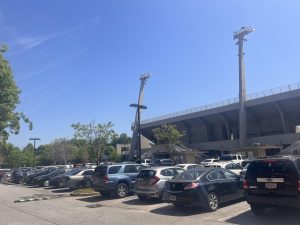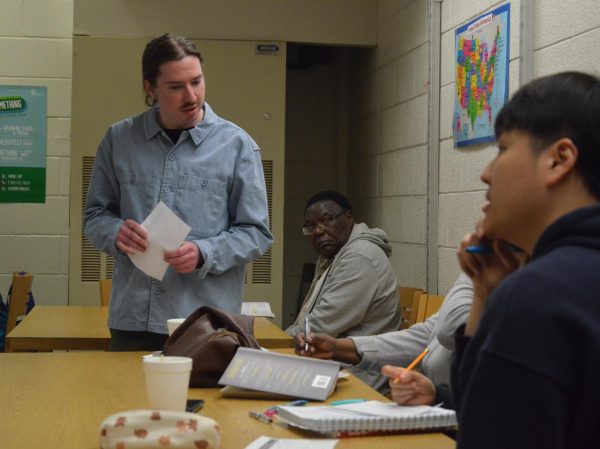Current parking system is sufficient, does not need to be changed
April 22, 2022
Midtown’s first-come, first-served parking system is not perfect. However, considering Midtown’s location and size, it is the fairest system under these circumstances and doesn’t need to be changed, despite the parking issues Midtown students and staff face.
Due to the location of the BeltLine and other popular businesses, along with residential neighborhoods, the streets surrounding the school are almost always full of cars. While parking lots are available, students are only allowed to park in two of the lots. The third is reserved for staff only. Therefore, it is no surprise that there are parking shortages.
With the current system, students who drive often have to leave early in the morning in order to get a spot. Those who want or need parking spots have the opportunity to ensure they get one by parking early in one of the two lots, while those who are late have to find parking spots in the surrounding neighborhood. While this does create an inconvenience, all students have an equal chance to get a parking spot, making this system fair.
The alternative to the current system is assigned parking, or the usage of parking passes. This system is implemented by North Atlanta High School, among others, but would not be a sufficient approach for Midtown because the parking space is very limited and giving out parking passes to every student who wants to drive is not feasible.
This would mean that students who actually needed a parking spot, such as students who work after school or are dual enrolled, would not be guaranteed a spot. Students who only drive to school for comfort could claim the limited spots and potentially cause the working and dual enrollment students to face more serious consequences. Druid Hills also has limited parking, and distributes passes first to students who actually need one, such as dual enrolled, limited day and senior students. While this system could work, it would only be successful for a short period of time.
Not all dual enrollment students have off-campus classes year round. Some classes are only half a semester and having a job year round isn’t guaranteed either. If these students were to receive a year-long pass when they wouldn’t need one, it would further limit parking space and destroy the idea of equity surrounding this proposed system.
There are other issues regarding assigned parking or parking passes — costs. At North Atlanta, parking spots cost $75 for the whole year, or $50 per semester. Maynard Jackson High School also uses parking passes, but they are $35. The cost of a hypothetical parking pass at Midtown needs to be considered carefully. If the cost was similar to North Atlanta, it is possible some students might not be able to afford a pass or feel reluctant to pay.
If this were the case, these students would have to park around the school, in the residential neighborhood. If a large number of students park there, it would inevitably bother the residents and could create problems for the school.
Midtown has access to the BeltLine, Piedmont Park and has a reliable bus system. If students do not want to utilize any of these options, they can always carpool with others or be dropped off by a parent. However, clearly from the amount of parking issues Midtown has, students who drive for comfort don’t want to use these options. If they did not receive a parking pass and are forced to use these options, many will likely complain.
The first-come, first-served system is fair and should continue to be used. Regardless of classes and money, by coming to school early, it allows anyone who wants a parking spot to get one. While it is far from perfect, the current system is the most effective for Midtown’s circumstances. Assigned parking and parking passes, on the other hand, stop students from having an equal opportunity and create too many problems.











